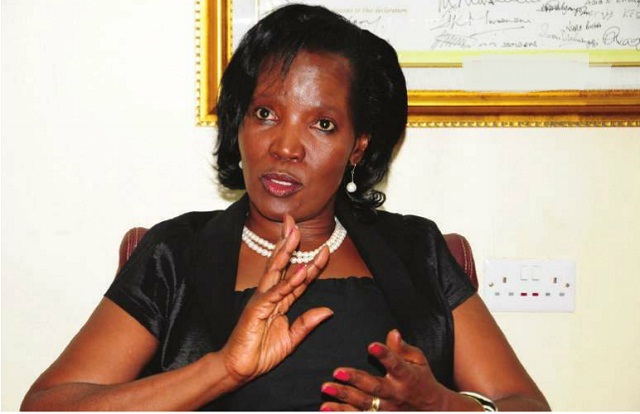
Traders say increase in taxes, fees, will increase the cost of doing business
The cost of living in Kampala is set to rise if the City Authority Council passes the new proposal seeking to slap new taxes and hike the existing ones on various services in a bid to raise extra revenue effective next financial year that start in July.
The new tax proposal, now before the Council, intends to raise taxes and fees on 44 items or services to plug the funding gap estimated to be about Shs200bn. This follows a budgetary cut in the financial year 2017/18 that had been pegged at Shs 337.39bn from Shs 561.33bn this financial year.
Among the proposed new taxes and fees are Shs 50, 000 fee on request to cut a tree within a private property, Shs 2 million express fine for illegal construction, Shs 500,000 per square metre fee for cutting through road pavement for installation of utility lines, and Shs 100,000 excavation and grading permit.
Others services whose taxes and fees have been proposed for hiking includes; parking yards permit from Shs 100,000 to Shs500, 000 per year, demolition permit from Shs 50,000 to Shs500, 000 and hoarding permit fees from Shs 100,000 to Shs250, 000.
KCCA has also completed the assessment of properties in the city with the possibility of levying a new property tax.
KCCA Director for public relations, Peter Kauju, told The Independent in an interview that the new tax measures are aimed at ensuring that the Authority collects more revenue for various infrastructural projects including roads and lights.
“We are also trying to ensure that we reduce our reliance on government for financing various projects and extend social services to the city dwellers,” he said.
Last month, KCCA Executive Director, Jennifer Musisi, said they have been compelled to introduce new taxes to raise more revenue and give the city a facelift as the country aims to achieve a middle income status as envisioned by the government.
She said the Authority plans to invest in various projects in the city including remodeling of about 20 roundabouts and increasing solar street lights.
KCCA, like other any local government in the country, is supposed to formulate, approve and execute its budget plan, collect revenue mainly from fees and fine and spend it on various projects.
But traders in the city through their umbrella body, Kampala City Traders Association, say a hike in taxes and fees will hurt businesses especially when the economy has not been good.
“We feel that KCCA need to shelve that plan because it is going to hurt our businesses more as a section of landlord passes the tax burden onto the tenants if no proper regulation is put in place. A number of us are already struggling to remain in operations,” said Everest Kayondo, chairperson of KACITA.
He suggests that the government reduces the number of legislators, districts and municipalities to lower the recurrent expenditure.
Currently, Kampala is considered as the country’s financial hub, accounting for approximately 80% of industrial and commercial activity and contributing 65% to Gross Domestic Product.
This new development comes at the time the central government is waiving taxes on some products and services to stimulate growth.
According to the budget 2017/18, the government has approved a five year tax waiver for Bujagali hydro power dam in a bid to reduce electricity tariffs.
Similarly, SACCOs have been exempted from paying some taxes so as to enable them grow and create more opportunities for the economy to expand.
Moses Ogwal, director policy advocacy at the Private Sector Foundation Uganda (PSFU) said they will soon carry out their study on the impact of the new taxes and fees on the cost of living and businesses before giving their recommendations.
****
 The Independent Uganda: You get the Truth we Pay the Price
The Independent Uganda: You get the Truth we Pay the Price





